By Meleni Aldridge, executive coordinator
Last week's Institute for Functional Medicine (IFM) annual conference in San Diego broke new ground. From it, we've distilled some key clinical pearls and take-homes from the assembled experts. Information is currency that deserves to be shared, especially when it's about paying into your bank of health and self!
The IFM's annual conferences are about education for healthcare practitioners. But many of the clinical pearls from this conference are equally translatable into take-home messages for personal empowerment. As with all of IFM's annual conferences, this one was information dense, however, balance and restoration techniques for busy, time challenged individuals who struggle to find time for adequate rest and movement was a theme that ran throughout. After all, it's not just our clients and patients who are time challenged and stressed. As Luke indicated, "Physician, heal thyself"...
There has been so much reinforcement in recent years of messaging regarding the importance of diet and lifestyle in restoring health and balance in one’s life. More often than not, however, the emphasis is placed on the diet, with movement and physical activity coming a poor, and guilty, second. Together even, most mainstream doctor's would regard diet and lifestyle, as somewhat trivial when compared with their powerful drugs. Science would suggest otherwise. Diet and lifestyle are probably the most powerful medicines in our armament, especially for chronic diseases.
Languishing way down on the priority list of lifestyle factors are sleep and restoration of peace of mind. Equally important in terms of health, but often given little airtime in our lives and through conventional health channels. Good on IFM for prioritising these issues as part of its commitment to continue the education of physicians and other health professionals.
Without further ado, here is a selection of key take-homes in easily digestible, bite-sized chunks to support further balance in your life:
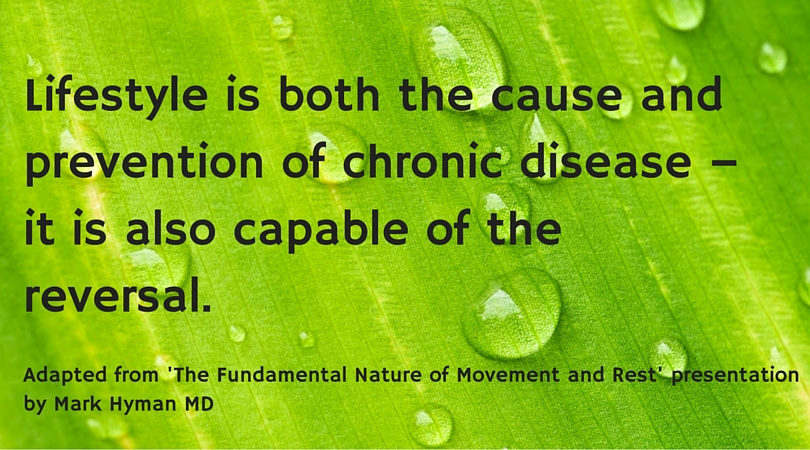
The need for sleep
Sleep problems precede anxiety and depression. They're often linked to poor sugar balance and type 2 diabetes, as well as to cardiovascular disease. Not sleeping enough, or not getting enough quality sleep, shortens your life and makes you age quicker. And here it is: to restore ourselves from the preceding day's efforts, we as adults NEED a minimum of 6-8 hours of 'shut-eye' in a completely darkened room every night!
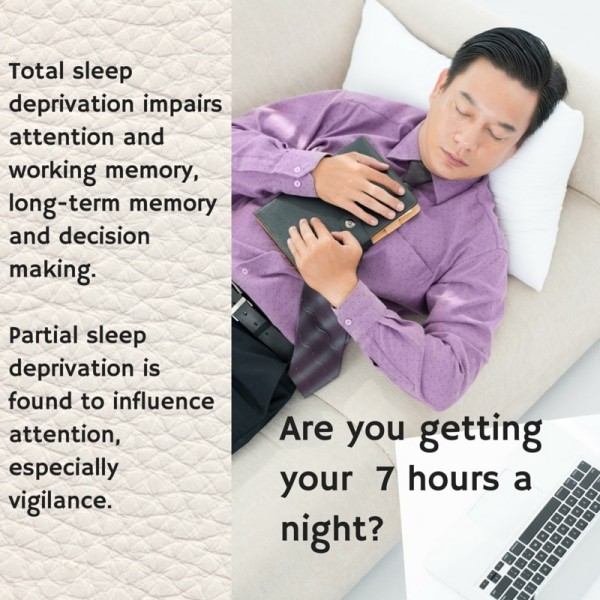
“Sleep loss may be one of the ways that inflammatory processes are activated and contribute to the association of sleep complaints, short sleep duration, and cardiovascular morbidity.” (Meier-Ewert HK et al. J Am Coll Cardiol. 2004 18; 43(4): 678-83).
We all know the adage, “early to bed, early to rise”. But did you know why this is so important? We can be visually blind but not ‘circadian blind’ in terms of our body clock. The retinal cells in our eyes are very sensitive to the blue/green natural light that is highest in the morning. If you sleep through it, you miss it and therefore miss out on the natural synchronisation that occurs with your physical environmental. Our peripheral clock needs to be entrained to synch with our circadian clock and waking early and getting light exposure is one way of ensuring it happens.
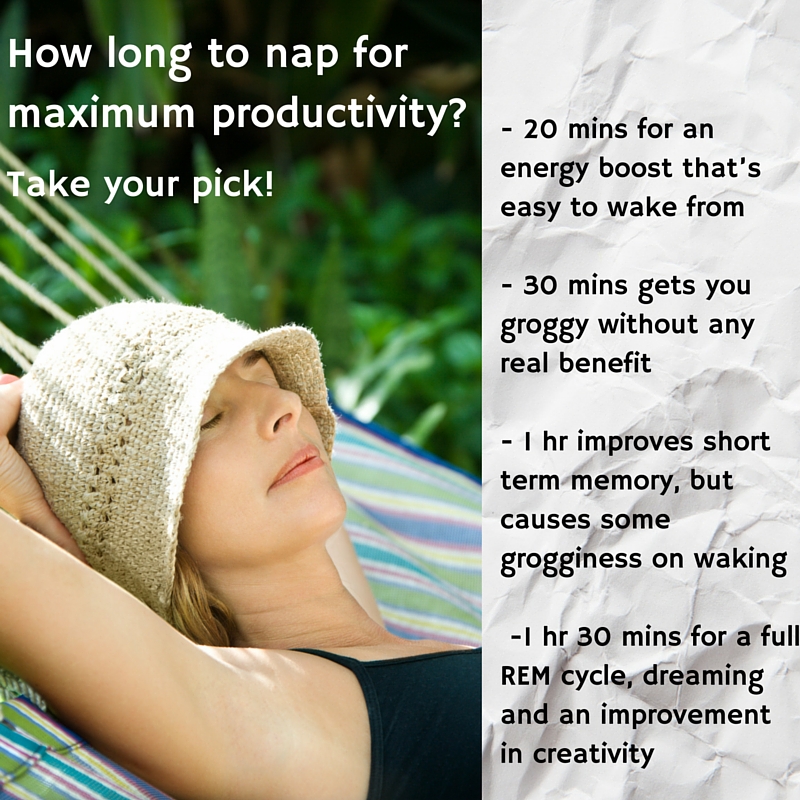
Sleep – our secret health weapon!
Restoring balance through mindfulness
When applying mindfulness, less is definitely more. The 'underperformance continuum' was described via the daydreaming — stress — addiction cycle, where the reward centres of the brain are stimulated, not by positive action, but by repeated negative stimulus. Using mindfulness techniques allows you to use your mind to literally change the way your brain works, but it takes commitment and focus.
You can take any repeated thought, behaviour or emotion that you'd like to change and start by becoming more aware and present with it. Are you?
- Recognising your behaviour / thought / emotion(s)
- Accepting / Allowing - are you resisting at some level?
- Investigating - at the time when you're thinking or experiencing this issue, what’s happening in your body? Your thoughts? Your emotions?
- Noting - label or mentally note your body sensations from moment to moment
With mindfulness training, remember to get out of your own way and not get caught up in yourself by finding balance in taking time to sleep well, move appropriately, eat well and give to others.
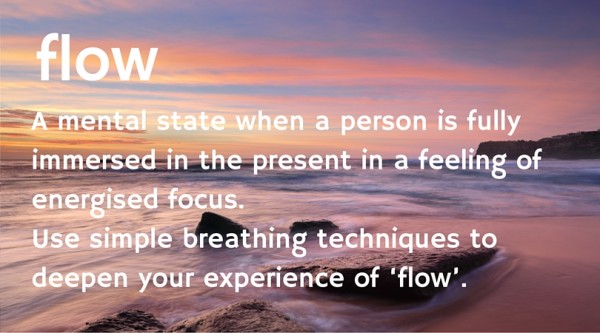
More movement
The problem?
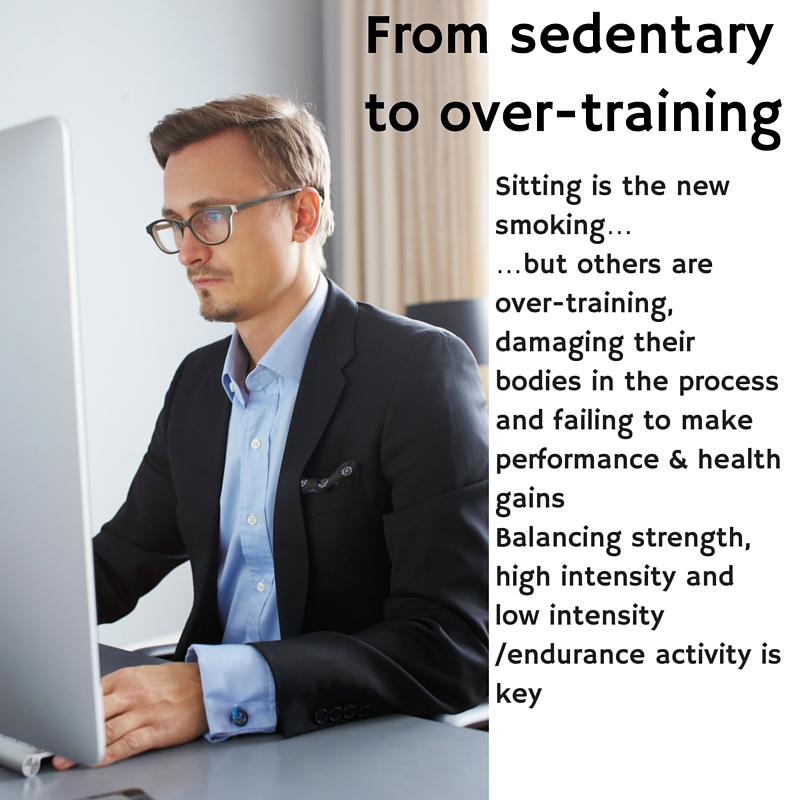
One of the easiest solutions to integrate into a busy lifestyle...
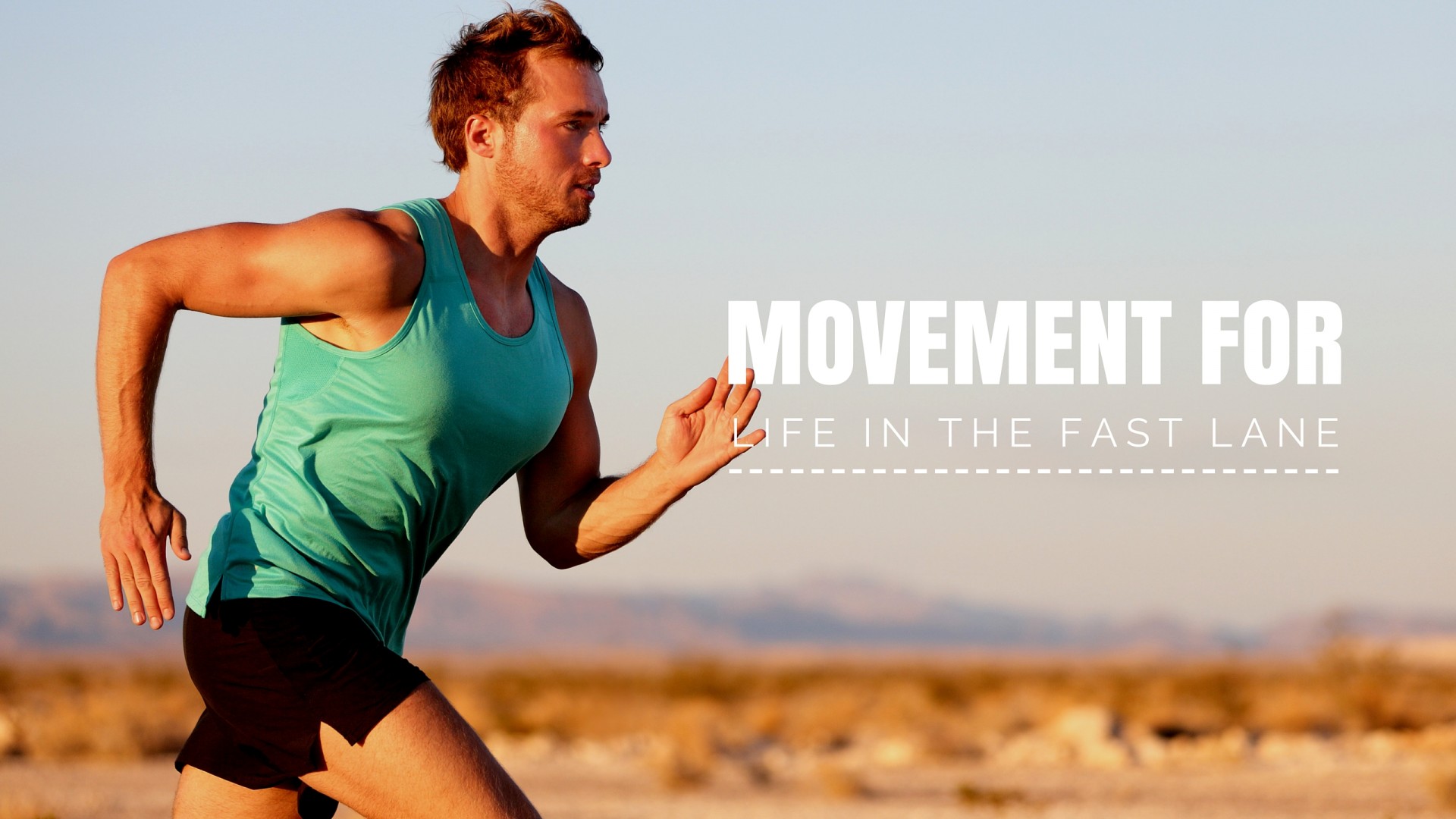
- Don’t sit for more than one hour at a time
- Work out harder, not longer
- Include some moderate to intense activity every day
- Build in 3 shorts sessions of intense activity into your day, each that might last only a minute or so (such as run up stairs, squats, jumping squats (if you an manage them!), lunges, burpees, etc.). These are short enough to not make you sweat so you can do them in your regular day wear!
Download a guide to the latest wearables available to assist your return to, and maintainance, of lifestyle balance.








Comments
your voice counts
There are currently no comments on this post.
Your voice counts
We welcome your comments and are very interested in your point of view, but we ask that you keep them relevant to the article, that they be civil and without commercial links. All comments are moderated prior to being published. We reserve the right to edit or not publish comments that we consider abusive or offensive.
There is extra content here from a third party provider. You will be unable to see this content unless you agree to allow Content Cookies. Cookie Preferences